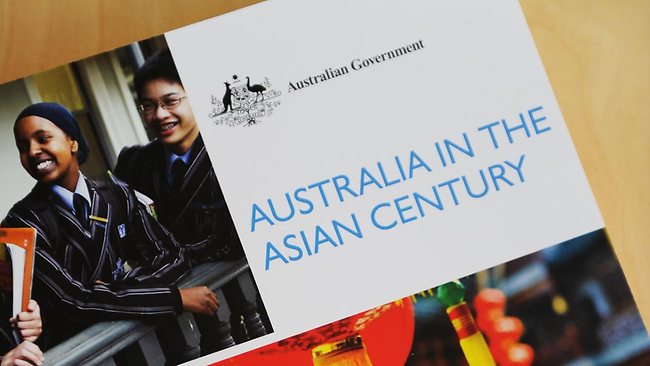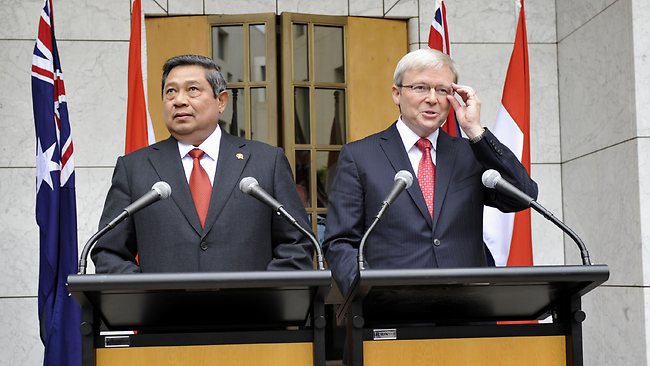Photo: AFP
Read the first post in this series here.
AIYA was broadly supportive of the Australia in the Asian Century White Paper although we doubled down on our engagement through drafting an official response to the White Paper and releasing this through our media contacts. As in the original submission, a team of three were drafted, this time comprised of Arjuna Dibley, AIYA’s Executive Director, Director of Communications Tim Graham and CAUSINDY Director Chris Urbanski.
In our position paper, we doubled down on our advocacy over the working holiday visa scheme – which did not rate a mention in the White Paper, but which we saw as an issue that should be front-of-mind for Australian foreign affairs officers working on the relationship.
Like many other commentators following the White Paper’s release, we drew attention to:
- A lack of specificity on ways and means to achieve the papers goals;
- Goal-setting that was not time bound, or well targeted.
We called for a series of policy initiatives to the greater supply and demand for ‘Asia capability’ in the workforce, including:
- Concessions for individual HECS contributions for tertiary subjects in Asian Studies or Asian languages;
- Tax incentives or subsidies for ASX listed corporations who provide entry level positions for Asia country or language specialists holding formal qualifications in the field; and
- Changes to government recruitment processes in favour of Asia-capable graduates, with avenues for public servants to develop Asia capabilities on the job.
At the heart of these recommendations is a belief that these Asia capabilities, such as language and cultural awareness, create a ‘public good’ by enabling Australia to deepen its economic engagement and improve its security through improved relationships with our Asia-Pacific neighbours.
While we still believe in this notion, these arguments are always difficult to advance as they require the uncertain and long term benefits of better regional engagement to be weighed against other pressing areas of Government concern. Every dollar devoted to Asian language training comes at the expense of a dollar of other subjects in the national curriculum, or health, welfare, overseas aid – and all at a time of fiscal constraint.
I’ll come back to this point shortly, but first want to introduce our most recent policy contribution – AIYA’s submission to the federal government’s Indonesia Country Strategy. This paper was greatly strengthened by adding some new faces to our policy team including Jess Laughlin, ANU Chapter President and Mike Tarn, a member of AIYA’s Western Australia chapter, who produced an outstanding document, and produced new insights into our members’ views through a refreshed survey.
In this submission, we changed our tack slightly from our response paper outlined above to 1) acknowledge the reality of the external operating environment – that government money does not grow on trees; and 2) deepen our thinking on what really is the right role of Government to play in fostering our engagement with the region – versus the role of the individual, business, or civil society (including AIYA). The new submission also included up-to-the-minute insight on our members’ views on the opportunities and impediments in the relationship
A lot of internal debate and reflection on our members’ survey led to us advancing more liberal arguments of Government as ‘market maker’ in Australia’s engagement with Asia: essentially building the railroad along which a two-way flow of public, business and civil engagement can flow. We also stressed the importance of cultural engagement and the value of people to people links in the relationship – direct insight from our survey of members who consistently rated these as the most important things to get right (as opposed to say economic, aid, or military engagement).
‘Build cultural awareness, and mutual understanding becomes easier’ was a recurrent theme in the data.
And so our paper landed on a discussion of opportunity areas and a set of recommendations that was centred on:
- Fostering people to people links: through better people mobility, easier access to immigrations schemes and greater engagement among alumni of in-country education and training programs;
- Cultural engagement: expanding on contemporary popular culture exchange such as OzFest, and developing an online cultural engagement strategy;
- Asian capabilities in the workforce: with Government being a ‘market maker’ through defining the ‘framework’ for Asia language and skills and disseminating in the workforce.
You can see the full submission on the AIYA website, but suffice to say we’re extremely proud of the quality of our set of high impact, but cost effective and practical recommendations. And from early indications – others are too – keep an eye out for an AIYA mention when DFAT releases its Indonesia Country Strategy later this year!
As mentioned in my previous post – CAUSINDY will be a real engine for AIYA’s policy ideas and contribution to the public discourse in the years ahead. And you don’t need to be a delegate to contribute in this area – AIYA’s members’ survey is a great way to make your ideas known, as is getting involved in our policy work through AIYA’s chapters or at the national level.




















